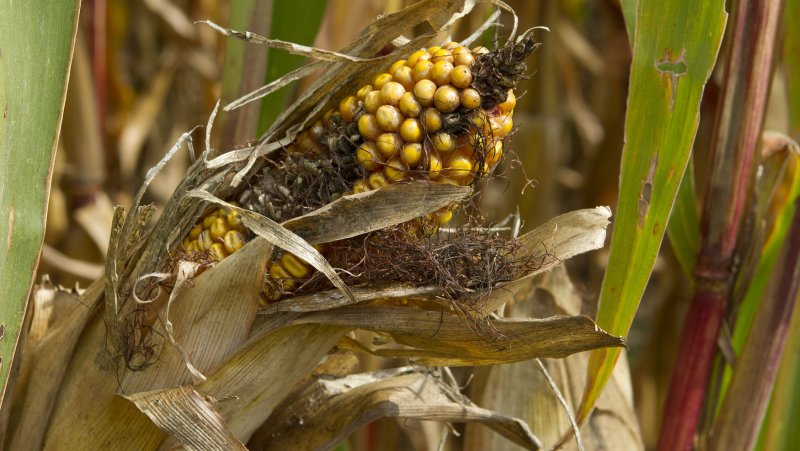The worst U.S. drought in fifty years withers the nation's corn crop as seen at a cornfield near Lapeer, Michigan on September 16, 2012. Corn-seed sellers earned large profit gains due to early planting season and favorable weather conditions. UPI/Gary C. Caskey |
License Photo
WASHINGTON, Jan. 15 (UPI) -- Time is running out to take a serious look at droughts and climate change as temperatures in the United States continue to climb, a Democratic leader said.
The National Oceanic and Atmospheric Administration said that, for the Lower 48 states, 2012 was 3.2 degrees Fahrenheit warmer than the average recorded during the 20th century. Last year also recorded the fourth-warmest winter and the second-warmest summer on record.
U.S. Rep. Ed Markey, D-Mass., ranking member of the House Natural Resources Committee, said there were growing concerns about lingering drought given that 60 percent of the country last year experienced some form extreme weather event like the deadly dust storm that swept over Texas last month.
Markey sent a letter to the Department of Agriculture and NOAA expressing his climate concerns.
"The Dust Bowl (in the 1930s) lasted for several years, but eventually the rains returned and the region recovered. Unfortunately, our current drought may be more than a passing natural phenomenon," he writes.
Markey last week said lawmakers should take climate issues seriously in the coming year.
His growing concerns come amid pressure from industry leaders in the conventional energy sector.
In November, the American Fuel and Petrochemical Manufacturers group filed a petition calling on the Environmental Protection Agency to reconsider stricter biofuels mandates. Some in the agricultural sector said the requirements would hurt them financially because of low corn yields brought on by drought.















